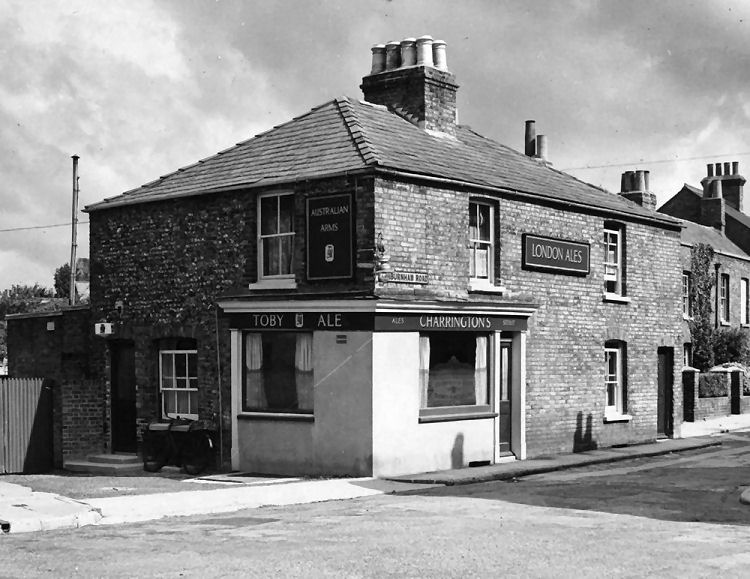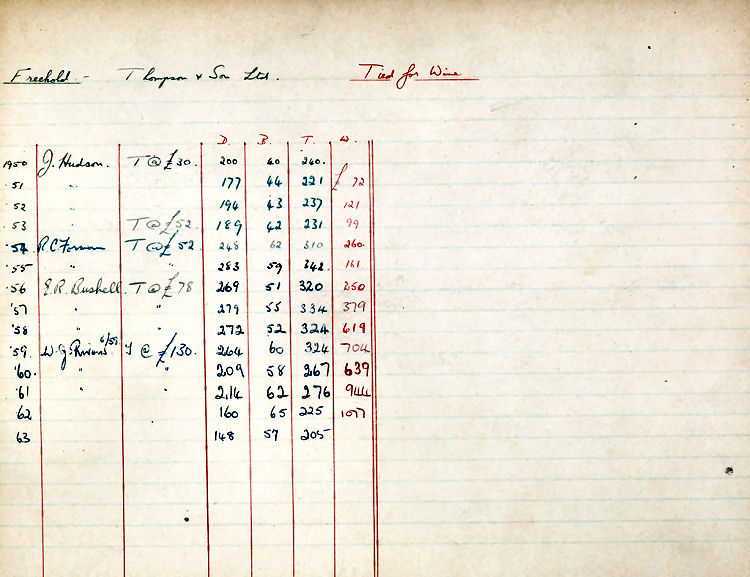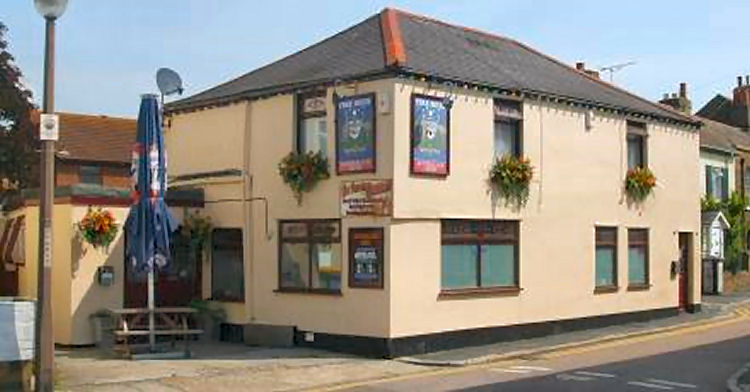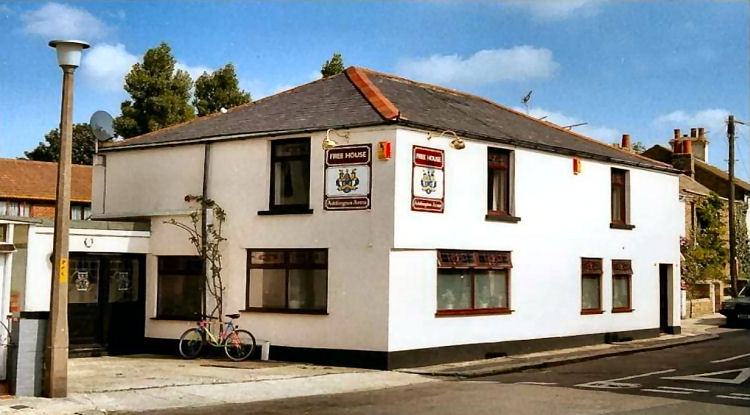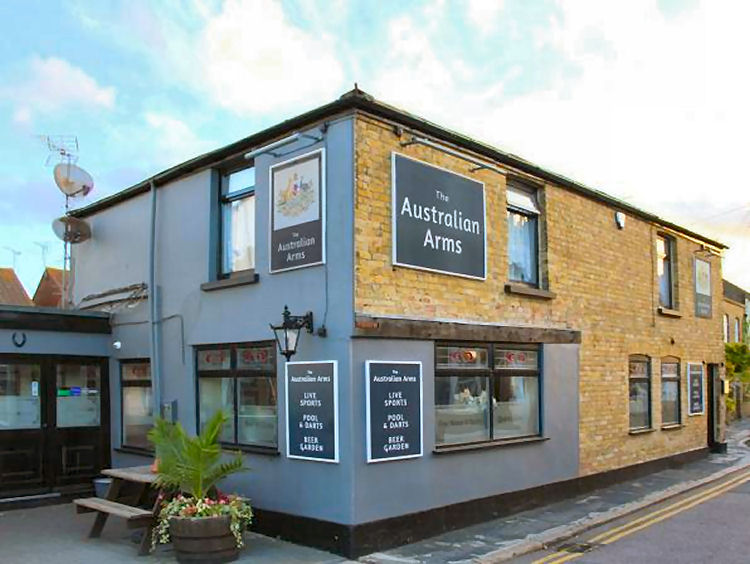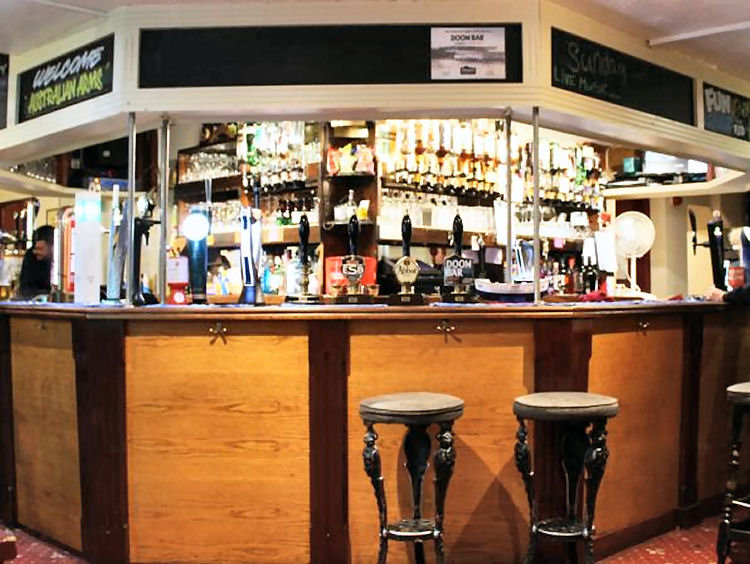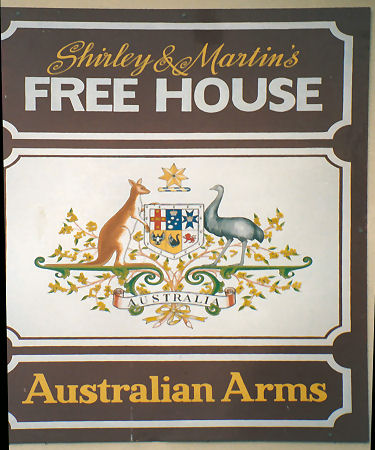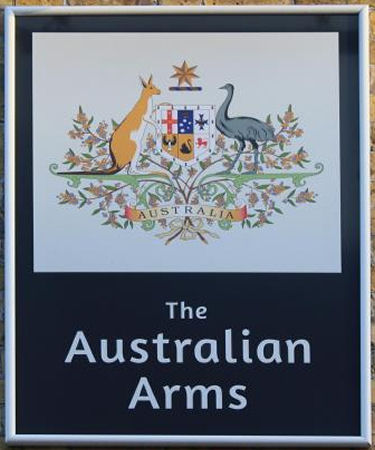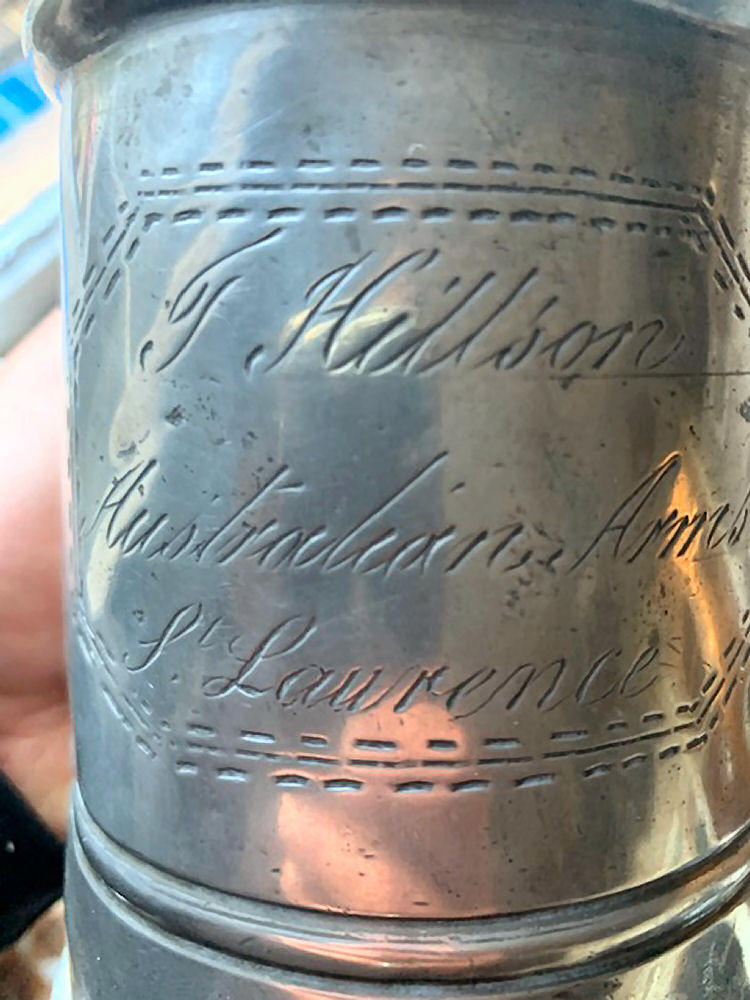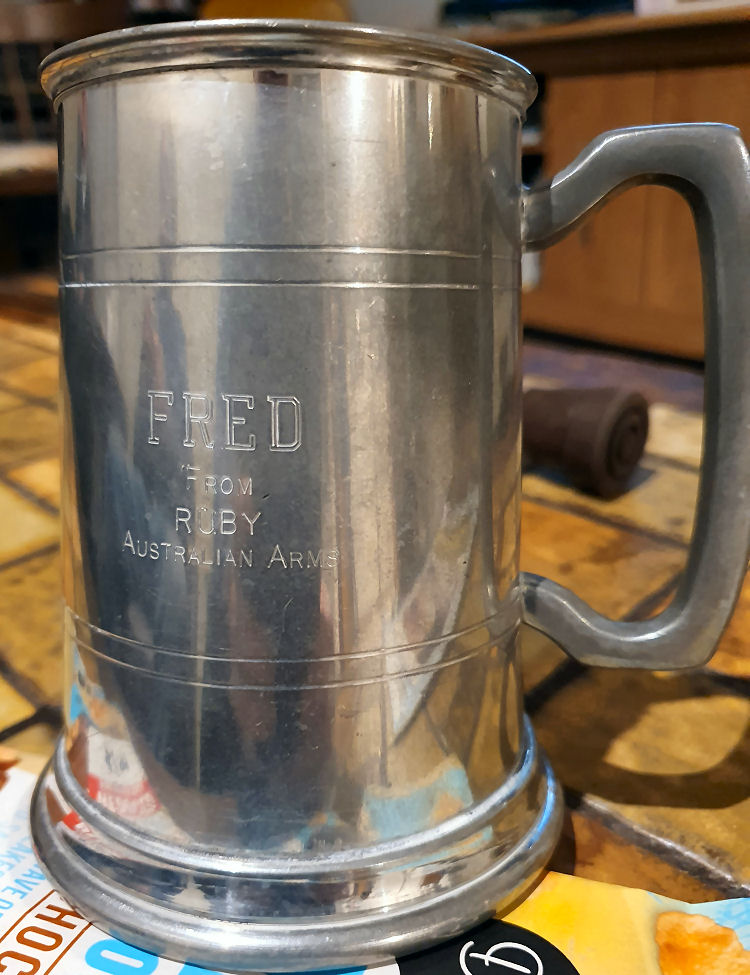|
From the Thanet Advertiser, Saturday 9 August, 1884.
A petty and doubtful charge of drunkenness.
Henry Larkin was summoned for being drunk on the licensed premises of
the "Australian Arms," in the occupation of Peter Stokes, on 23rd July.
Mr. A. B. Burrows appeared for the defendant, who pleaded not guilty.
P. S. Cashford said that at 8:30 p.m., on the 29th of last month ....
Mr. Burroughs:- That is not the day we are summoned for.
Superintendent Buss said the sergeant made the report on the 24th.
The report book was then sent for, and on Cashford referring to it he
said he had made a mistake. It was on the 23rd, at about 8 o'clock, when
he saw the defendant go into the "Australian Arms," kept by Peter
Stokes, by the back way. He followed him in, and saw him seated with his
head hanging down. Defendant was staggering drunk, or he would not have
followed her him in. He called the landlord's attention to him, and he
replied he had only just come in, and that he had not served him with
anything. Stokes requested the defendant to leave the house.
Cross examined:- I was within six yards of the defendant when he
staggered into the house. I followed about a minute afterwards. It is
not my duty to order a man out of a house unless requested to do so by
the landlord. I went out before the defendant. I did not say anything to
him.
Cashford then asked whether he could repeat what the defendant said when
he served the summons upon him.
Mr. Burrows objected, and said it was not admissible as evidence.
The Bench, however, decided to allow it, and Cashford then stated that
when he served the summons upon defendant he said, "I know I had been
drinking, but I was not disorderly; I was very quiet."
This being all the evidence for the prosecution, Mr. Burroughs submitted
that there was nothing for him to answer.
The sergeant said he saw the man go staggering along into the house, and
on following a minute afterwards found him sitting there with his head
hanging down. He did not stop, however, till the defendant left, in
order that he might see if he was in a state of intoxication or not, but
went out without saying a word to him. The Magistrates certainly could
not complete on such evidence as that, and he felt sure that when they
had heard the evidence he was about to call they would dismiss the case.
The defendant was then sworn, and deposed that he lived at St Lawrence.
He went to the "Australian Arms" on the evening in the 23rd of last
month. He has heard what P.S. Cashford had said, and it was not true
that he was in a state of intoxication. He was in the "Australian Arms"
about a minute and a half, but had nothing to drink there. He had just
come up from Ramsgate, and when he got to the house he sat down. He was
tired after his walk. He did not tell P.S. Cashford that he (defendant)
had been drinking. On leaving the "Australian Arms" he went straight
home.
By superintendent Buss:- He did not remember having been in any public
house in Ramsgate that evening before going up to St Lawrence. He went
into the "Australian Arms" to sit down, as he was tired after his walk.
His house was about 200 yards further on. It was not true that Mr.
Stokes requested him to leave. He would swear he was sober. The reason
he left so soon was because two other men had just been told to leave
the house, and he thought he would leave too.
George Sutton, a labourer, residing next door to the "Australian Arms,"
said he recollected the evening of the 23rd July. He saw the defendant
going into the public house; he was walking straight, comfortably, and
leisurely along. That was between 7 and 8 o'clock. He saw the defendant
came into the "Australian Arms" about 7:30 on the evening in question.
He was followed within about three or four minutes afterwards.
Richard Crouch, a bricklayer, said he went into the "Australian Arms"
about 5.45 p.m. on the day in question, and stayed there till nearly
eight. The defendant came in and stopped a quarter of an hour or twenty
minutes, not more. He was perfectly sober when he came in. Cashford did
not come in till three or four minutes afterwards, when he asked for the
defendant, who was sitting right in front of him. The landlord did not
request Larkin to leave.
George Stokes, of 8, Alfred Cottages, said the defendant came into the
"Australian Arms" about 7.30 on the evening in question. He was followed
within about three or four minutes by Cashford. Larkin was sober, he
was quite sure about that, and sat on the sofa opposite the door. He did
not hear Cashford speak to the defendant, and he was certain the
landlord did not request him to go.
The Chairman said there was no doubt that the defendant had been
drinking; there seemed to be some doubt, however, as to whether he was
drunk, and they would therefore give the defendant the benefit of it,
and dismiss the case.
Edward Philpott and William Philpott had also been summoned for like a
offence.
Superintendent Buss said the evidence in these cases was the same as in
the last, and therefore he asked permission to withdraw them.
|
